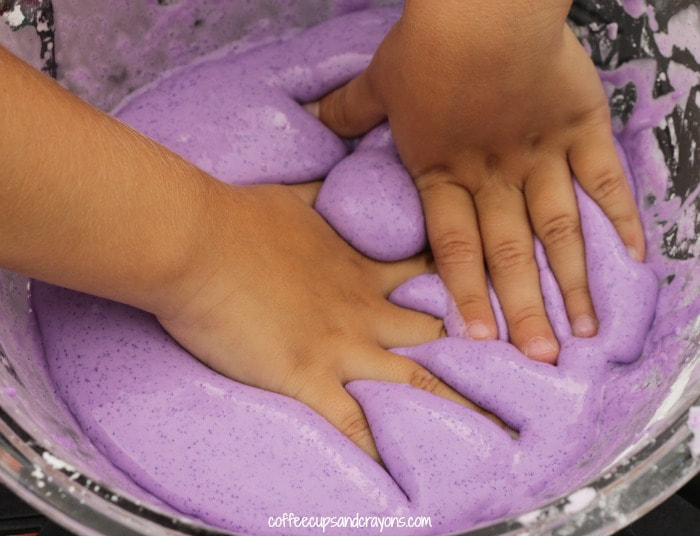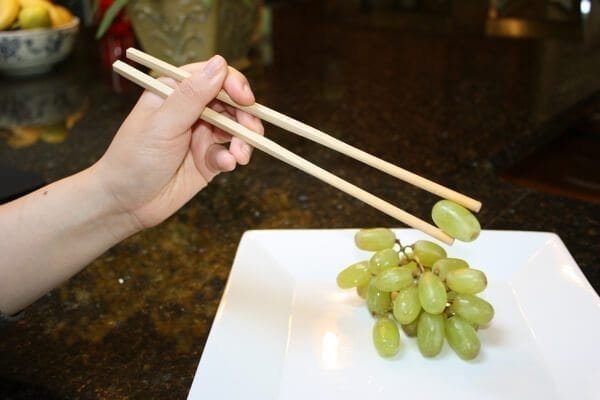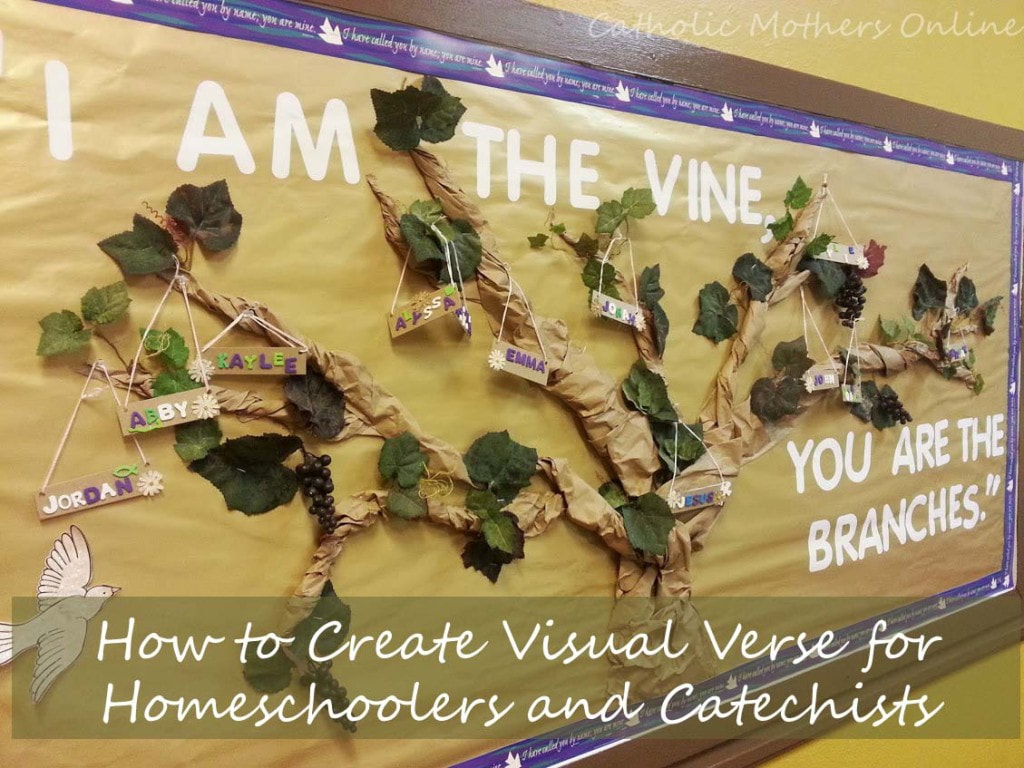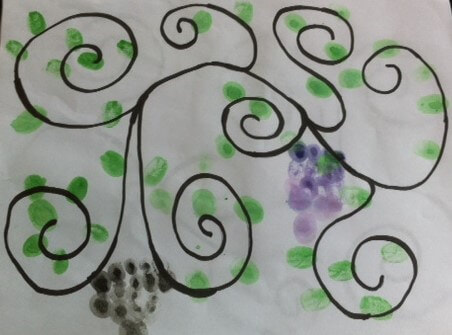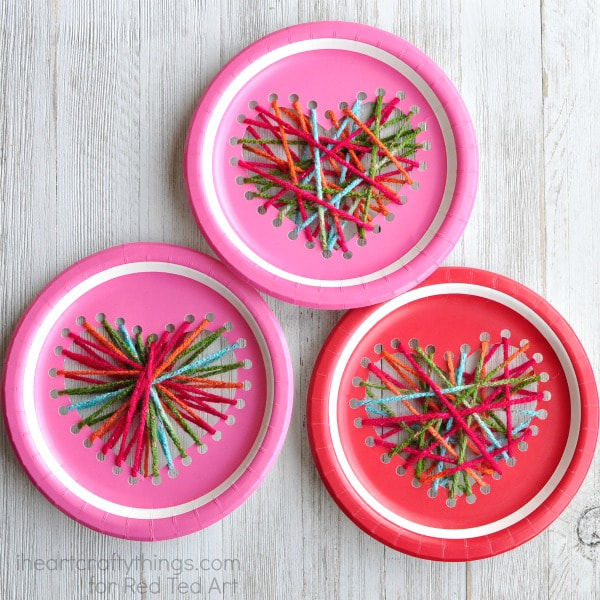The vine and the branches (John 15:1-8)
Today Jesus told his disciples a story about being like a vine.
Bible Passage ReflectionHave you ever done any gardening? (Pause for answers) Well, I really love looking at and enjoying gardens, but I'm not really very good at keeping plants alive and healthy.
In today's story, Jesus said 'I am the vine, and you are the branches'. What do you think he means? (Pause.) I wonder why Jesus told this story? (pause) Well, this story helps remind me that its important to look after my relationship with Jesus. There are lots of ways that we can do this. Do you have any suggestions? (pause) Some of the ways that I like to spend time with Jesus are by reading stories from the bible, drawing pictures that show how I'm feeling or things that I've been doing, going for walks and talking to Jesus. Intergenerational worshipThoughtful intergenerational worship resources written by Elizabeth Waldron Anstice, for Intergen Australia. These resources focus on the interaction of an Ethiopian slave with Philip in Acts 8:26-40 and the encouragement of Jesus to his disciples in John 15:1-8 to remain connected.
Lost Sheep storyAndrew McDonough has written a great Lost Sheep version of this Bible story, called Basil the Branch. Story book, presentation images for use in larger services and downloads are available here.
Activities
Gospel ConversationsSometimes the most challenging thing about a biblical passage can be to avoid thinking, "Oh, I've read that/heard that a million times." The image of Jesus as the vine and us as the branches could strike us with that sort of familiarity, so the Conversationalists today "branch out" to see how we might be able to look at it anew. Join Rt Reverend Kelvin Wright, Revd Nicki Colledge (Brisbane Diocese), and Revd Anne van Gend as they puzzle it out with Archdeacon Michael Godfrey. (Dunedin Diocese)
2023 Gospel Conversations
In this Gospel Conversation for Easter 5, the Diocesan Ministry Educator Michael Godfrey is joined by Chris Holmes, University of Otago Theology Department, Trish Franklin, an Educator at Otago Polytechnic and Jonathan Wood, landscape design gardener from Dunedin as they talk about John 15:1-8 and what it means to be connected to the vine. |
Quick Questions
Children's Talk 2A group talk for older kids
You will need: Bibles Pictures of vines and grapes Grapes to share Finger labyrinths
Vine TagPreparation
Nothing! What to do Choose someone to be 'in'. When you say 'Go', the person who is in must try to tag someone. When they succeed, they must link arms/hold hands with the person they tagged. Now both of them can tag people with their free hands. Each time some gets tagged, they link arms/hold hands and carry on until everyone is in one big chain. Grape BookmarksYou will need
What to do Give out the blank book marks and get the children to draw on a vine with a green felt tips. Paint on the dots of the grapes with cotton buds. Write on the words: I am the vine, and you are the branches. If you stay joined to me, and I stay joined to you, then you will produce lots of fruit. John 15:5 (or a part of it!) If you wanted to go bigger, you could use larger items such as water balloons or stress balls to paint bigger grapes :) Vine Walk Obstacle CourseAn obstacle course for younger children
Preparation If you are confined to a room for this lesson, set up a 'course' in the room using tables and chairs that you can lead the children through. Otherwise take them for a walk outside. What to do
Creative Vine Art Display
What you need
A large branch stripped of all its leaves or flowers, large piece of thick white paper, crayons in greens, blues, yellows, white and black, green dye (food colouring diluted with water would work for this), scissors, tape Preparation Draw/trace leaves all over the piece of paper for the children to cut out. Use the template provided or create your own. What to do
Variations Rather than one big vine, each child could make smaller individual versions. If you can't find a branch, create your own out of corrugated cardboard. Children's talkYou will need
|
Media
|
|
|
|
Remain in my love (John 15:9-17)
Today's story looks at the words of love that Jesus shared - "I have loved you even as the Father has loved me. Remain in my love."
Intergenerational worshipA series of intergenerational resources for today's lectionary readings, written by Elizabeth Waldron Anstice for Intergen Australia
Quick Questions
Activities
Children's Talk #1A talk for younger children
|
Visio LectioPrints from Rev. Sarah West from the Diocese of Auckland, shared with permission. Terms of Use
Gospel ConversationsContinuing on through John's Gospel, we dig deeper into that amazing word, "Abide", which we encountered last week. Our conversationalists find in it comfort, questions, and challenges . Especially, how does abiding in Christ connect to his command for us to love each other? Professor David Tomb (University of Otago), Rev Wendy Scott (Masterton), and Dean Ben Truman (Christchurch Cathedral) give us memorable pictures and ideas to ponder on.
Previous GC conversation from 2023
In this Gospel Conversation for Easter 6, the Diocesan Ministry Educator Michael Godfrey is joined by Bishop Steve Benford, Katie Marcar (University of Otago New Testament lecturer) and Steve Mitchell (Pilot and Businessperson, Invercargill). The conversation is on John 15: 9-17 exploring what it might mean to be the True Vine… on being loved and loving each other. Who would have thought that God wants to be our friend….?! Children's Talk #2What do you think Jesus meant when he said: I chose you and sent you out to produce fruit, the kind of fruit that will last? Does that mean he wants us to all become fruit gardeners? No! I believe that it means that Jesus wants us to love one another.
For example, if you smile at someone, or give them a present, or say something nice to them, you are showing that person love and producing good fruit. And because you did, they may in turn, do the same for someone else. What do you think would be producing bad fruit? (pause) Things like saying mean things or hitting someone. Why do these produce bad fruit? (pause) I believe it's because these things make people feel bad, and so they then want to make other people feel bad. Which would you rather produce? Good fruit or bad fruit? What are some ways that as Christians we can produce good fruit? Fruit KebabsWhat you need: pieces of fruit, fruit lollies, kebab sticks, ribbon and the photocopied fruit gift tags.
What to do:
|
Songs
|
|
|
|





